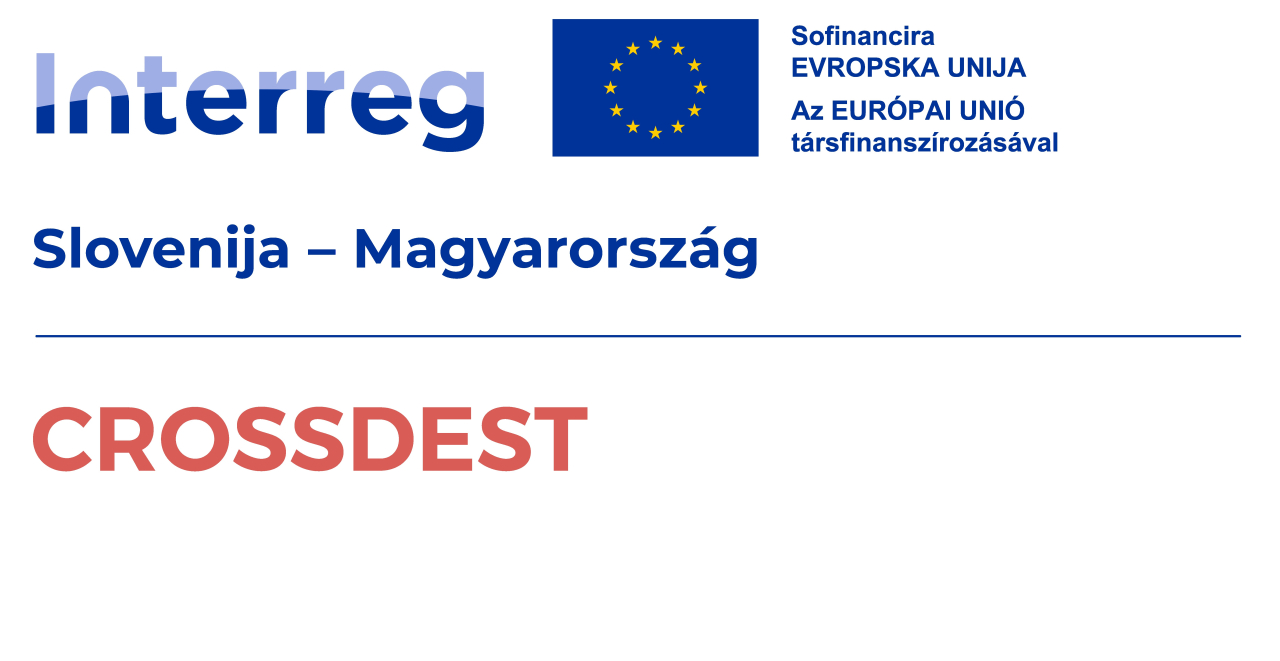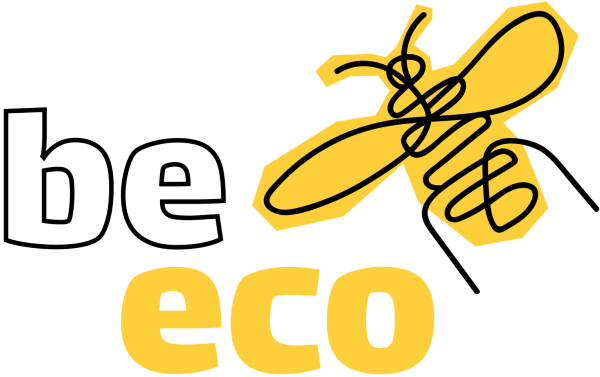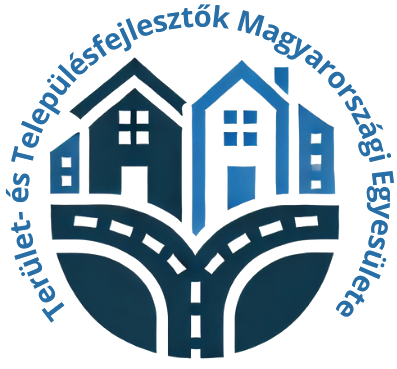

CROSSDEST
In 2023, we developed the proposal titled "Cross-Border Destination Development for Inclusive and Sustainable Tourism in the Slovenian-Hungarian Border Region" (CROSSDEST) in collaboration with Hungarian and Slovenian municipalities and tourism organizations. The proposal was submitted in January 2024 under the Interreg VI-A Slovenia-Hungary 2021–2027 program. The application was approved, and the project implementation is set to begin in the autumn of 2024.
Project Budget:- Total budget: €936,312.00
- ERDF funding: €585,685.20
- Hévíz Tourism Nonprofit Ltd.
- Pannon European Grouping of Territorial Cooperation Ltd.
- Murska Sobota Development Center
- Lendava Institute for Tourism and Development
- Goodplace – Institute for Sustainable Tourism
- Sárvár Tourist & TDM Nonprofit Ltd.
- Innotime Hungary Consulting and Service Ltd.
Currently, 90% of all overnight stays in Slovenia occur in destinations certified under the Green Destinations (GD) system, accredited by the Global Sustainable Tourism Council (GSTC). Additionally, an increasing number of attractions and tourism service providers are earning sustainability certifications within the Slovenia Green program. Sustainability is now a key driver of tourism in Slovenia, influencing both industry stakeholders and visitors.
In contrast, sustainable tourism development in Hungary remains in its early stages. However, international pressure is mounting, as the lack of GSTC-recognized sustainability certifications diminishes the region’s competitiveness. Addressing this challenge requires a comprehensive approach, encompassing public awareness, the development of sustainable systems, the improvement of service providers' sustainability practices, and the transformation of the destination brand.
More than two-thirds of global travelers seek sustainable destinations. The Slovenian-Hungarian border region can only position itself as a unified, sustainable tourism destination if Hungarian destinations achieve GSTC sustainability certification. Furthermore, a sustainable destination cannot exist without sustainable service providers, making it essential for more attractions and tourism businesses to obtain sustainability certifications. Simultaneously, a cross-border tourism network must be established, where members collaborate on joint tourism products under a unified sustainability brand.
Challenges to AddressThe four municipalities involved in the project are individually well-known internationally, attracting distinct but evolving target audiences, especially post-COVID. However, to transform the region into a cohesive cross-border destination with repeat visitors and extended stays, the following issues must be addressed:
- Significant disparities in sustainability and accessibility preparedness
- Lack of a comprehensive quality management program that ensures consistent services for key target groups (e.g., families, pet owners, cyclists, seniors) in line with international standards
- Absence of a unified and up-to-date tourism information system that provides personalized insights into the region’s tourism offerings on both sides of the border, including local products
- Lack of collaboration among tourism stakeholders and local producers, resulting in fragmented regional offerings and missed opportunities to leverage the circular economy
-
Green Destinations Certification:
- Based on Murska Sobota’s best practices, all project partners will work toward obtaining GD certification while Murska Sobota aims for at least Silver-level certification.
-
Pilot Programs for Regenerative Tourism:
- Four pilot programs will be implemented—one at each location—to strengthen regenerative tourism. The developed programs will be transferable between locations.
-
Sustainability Certification Support:
- At least 20 attractions and 40 service providers will be prepared for GD’s Good Travel Seal certification.
-
Circular Economy Pilot Program:
- A pilot program supporting the circular economy will be developed and implemented across the four partner municipalities.
-
Sustainable Quality Management and Monitoring System:
- A quality management and monitoring system aligned with international standards will be developed to support sustainability efforts.
-
Unified Methodology for Sustainability Standards:
- All partners will adopt a standardized approach based on GD criteria.
-
Digital Sustainability Monitoring Platform:
- Innotime Hungary will develop a digital platform enabling all partners to monitor their sustainability performance, including a sustainability index for destinations and tourism services.
-
Sustainable Tourism E-Learning Program:
- A comprehensive e-learning curriculum will be created for all tourism service providers in the region, covering sustainability criteria and cross-border tourism values.
-
Mentorship & Training for Tourism Service Providers:
- A unified mentorship program will prepare tourism businesses for international certification, while the circular economy pilot program will integrate local producers on both sides of the border.
-
Cross-Border Destination & Product Development:
- By the project’s completion, municipalities will offer consistent high-quality services, and attractions and service providers will collaborate on new cross-border tourism products.
The project consists of four main components:
-
Unified Quality Management System
- A standardized quality management framework based on GSTC criteria will be developed to support sustainable tourism development at both the destination and service provider levels.
- This system will also prepare destinations, attractions, and tourism service providers for international sustainability standards.
- By the end of the program, participating destinations will achieve Green Destinations certification, and at least 40 tourism businesses will be eligible for Good Travel Seal certification.
-
Cross-Border Monitoring & Data Integration
- A unified monitoring system will be established, connecting to the European Commission’s Common European Tourism Data Space.
- This system will provide standardized indicators and data collection methodologies, allowing destinations and tourism businesses to assess their service levels and benchmark their sustainability index within the region.
-
Sustainable Tourism Product Development
- Each project partner will develop a sustainable tourism product to align with regional sustainability efforts.
- The pilot projects will showcase various sustainability experiences, with a fine-tuning period to optimize implementation.
-
Cross-Border Tourism Database
- A tourism database will be created to facilitate cross-border trip planning for individual visitors and business collaborations among tourism service providers.
- The database will include services from at least the four participating destinations, with the potential for future expansion.
- The project will ensure broad participation of regional tourism providers to maximize available offerings.
The project is co-financed by the European Union and supported by the Hungarian Government.
More Pages
-
4 Mins

Read -
1 Mins

Read -
1 Mins
Read -
1 Mins

Read -
3 Mins

Read -
3 Mins

Read -
3 Mins

Read -
4 Mins

Read -
3 Mins

Read -
2 Mins
Read -
3 Mins

Read -
4 Mins

Read -
3 Mins

Read -
4 Mins

Read -
7 Mins

Read -
9 Mins

Read -
3 Mins

Read -
4 Mins

Read -
3 Mins

Read -
3 Mins

Read -
1 Mins

Read -
2 Mins

Read -
2 Mins

Read -
7 Mins

Read -
1 Mins

Read -
3 Mins

Read


